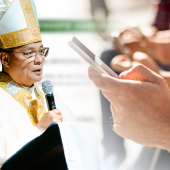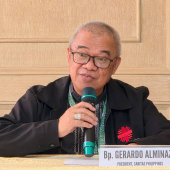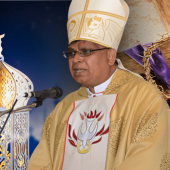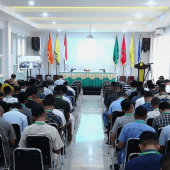Philippines: Diocese Names Trees After Filipino Bishops in Plantation Drive
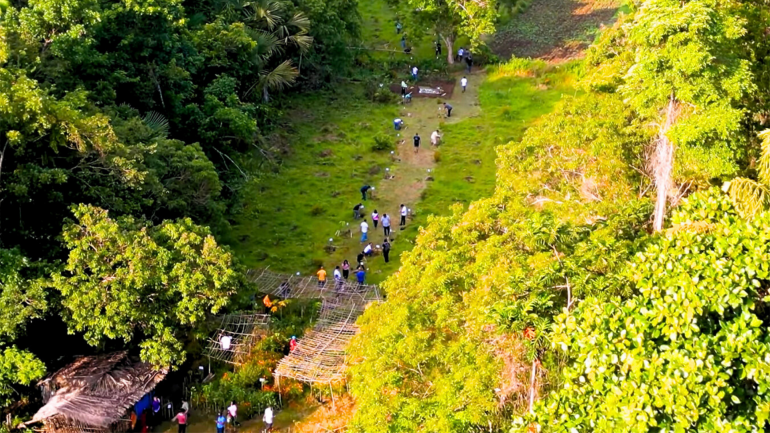
A tree-planting initiative in the Philippines has paid tribute to the Catholic Bishops’ Conference of the Philippines (CBCP) by dedicating a new tree-lined path to Filipino prelates.
The clergy of the Diocese of Tagbilaran planted narra trees along what is now called “CBCP Avenue” in the town of Sikatuna, in the province of Bohol—each tree bearing the name of a Filipino bishop.
Recently, the CBCP held its annual plenary assembly for the first time in the Diocese of Tagbilaran. “[This will be] a place to remember this extraordinary gathering of shepherds during the Jubilee Year of Hope, and this island province that chose to plant peace, faith, and unity in the soil of tomorrow,” the diocese said in a statement.
According to Tagbilaran Bishop Alberto Uy, CBCP Avenue also serves as a symbol of the Church’s commitment to the care of our common home.
“Rooted in faith and driven by hope, this shared mission reminds us that nurturing creation is also nurturing the soul,” said the bishop.
CBCP Avenue is part of a larger environmental initiative called “SIKATUNARRA”—a portmanteau of the town’s name, Sikatuna, and the Narra tree.
According to the Diocese of Tagbilaran, the initiative aims to plant hundreds of thousands of narra trees to transform underutilized land into a vibrant tree park.
“SIKATUNARRA is not just about beauty or tourism. It is a bold act of climate hope,” the diocese explained. “In a time when our planet groans under the weight of global warming, this initiative stands tall—a grassroots answer to a global crisis.”
Narra, the national tree of the Philippines, was chosen not only for its environmental benefits but also to honor Filipino heritage.
“With its golden flowers and deep roots, narra is a perfect symbol of Filipino resilience and pride. As we nurture this tree, we also nurture the soul of our nation,” the diocese said.
Radio Veritas Asia (RVA), a media platform of the Catholic Church, aims to share Christ. RVA started in 1969 as a continental Catholic radio station to serve Asian countries in their respective local language, thus earning the tag “the Voice of Asian Christianity.” Responding to the emerging context, RVA embraced media platforms to connect with the global Asian audience via its 21 language websites and various social media platforms.










